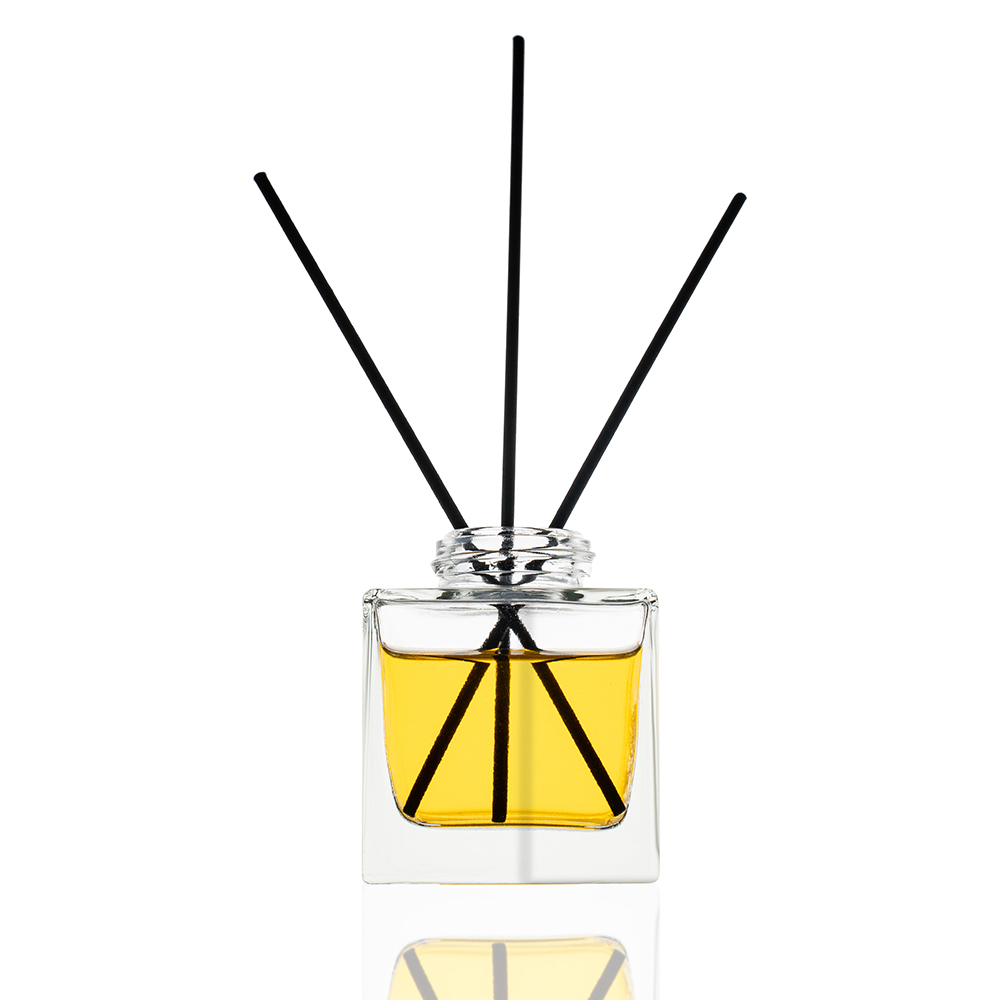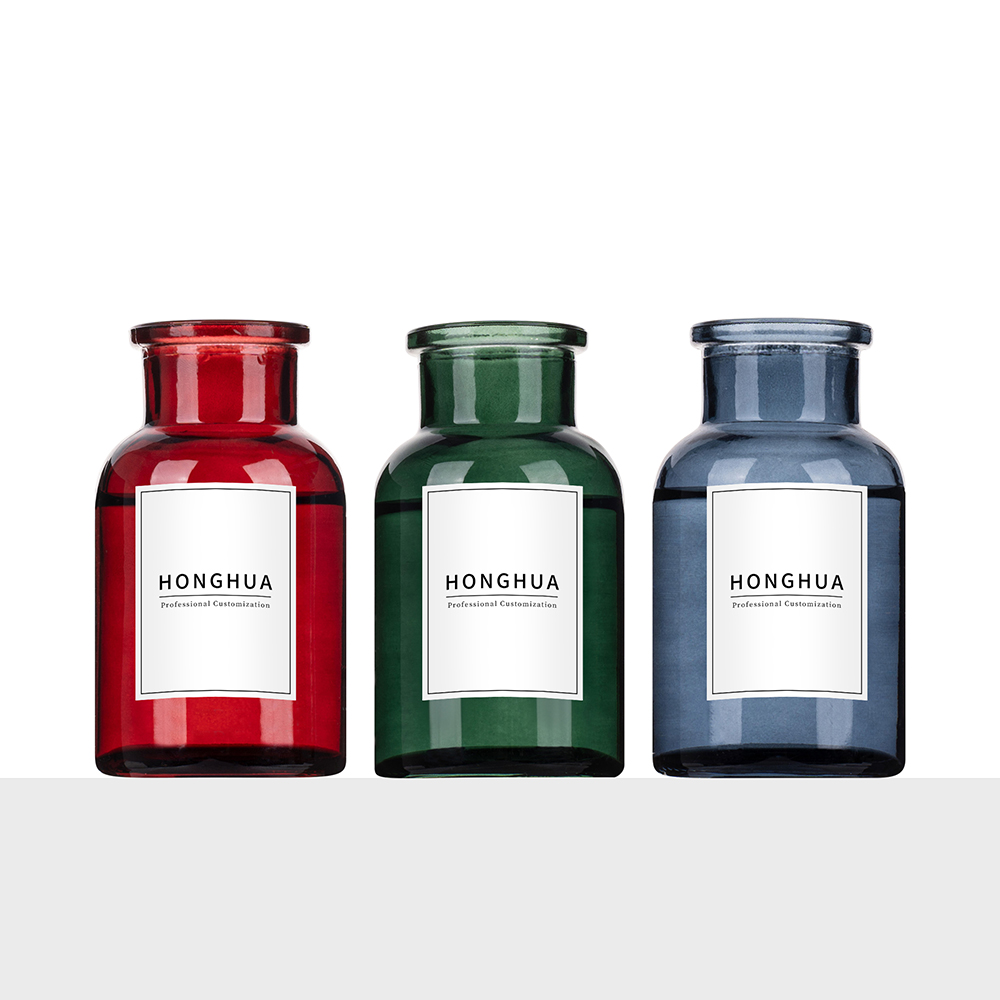That beautiful perfume bottle on your dresser, once holding your favorite scent, now sits empty. What do you do with it? Tossing it in the bin might seem like the easiest option, but is it the most responsible? In a world increasingly focused on sustainability, understanding how to recycle or reuse these elegant containers is more important than ever. This article dives deep into the possibilities of recycling glass perfume bottles, exploring the challenges, the proper procedures, and creative alternatives. As a factory owner, Allen, from Hhbottle, with seven production lines in China, I've seen firsthand the intricacies of glass bottle manufacturing and the growing demand for eco-friendly solutions from clients in the USA, North America, Europe, and Australia. We often work with cosmetic companies and personal care brands who, like many consumers, are asking: "Are perfume bottles recyclable?" Let's find out if it's possible to recycle these old perfume bottles and how you can make a difference. This guide will provide you with the knowledge to properly dispose of your empty perfume bottles, contributing to a greener planet.
1. Why Bother Recycling Perfume Bottles Anyway? The Bigger Picture.
You might wonder, "It's just one small perfume bottle, does it really matter if I recycle it?" The answer is a resounding yes! Every effort to recycle counts, especially when we consider the collective impact. Recycling glass bottles, including those used for perfume, conserves natural resources because it means we don't have to extract as much raw material like sand and soda ash to make new glass. Think about the energy saved too! Producing new glass from raw materials is an energy-intensive process. Recycling glass, on the other hand, uses significantly less energy, which in turn reduces greenhouse gas emissions. This is a crucial step towards mitigating climate change.
Moreover, when you choose to recycle your empty perfume bottles, you're helping to reduce the amount of waste that ends up in a landfill. Landfills are not a sustainable solution; they take up valuable space and can release harmful substances into the environment. The environmental impact of a single perfume bottle might seem small, but multiply that by millions of perfume users worldwide, and the problem becomes substantial. As someone who supplies high-quality glass containers to international markets, I, Allen, understand the importance of the entire lifecycle of a product. Promoting recycling and reusing is part of our responsibility. Choosing to recycle your perfume bottle is a simple yet powerful eco-friendly action.
2. Are All Perfume Bottles Recyclable? Understanding the Materials.
This is a common question, and the answer isn't always straightforward. While many perfume bottles are made of glass, which is generally highly recyclable, the specific type of glass and the presence of other components can complicate the recycling process. Most glass perfume bottles are made from a type of glass similar to that used for food jars and beverage glass bottles, often referred to as soda-lime glass. This type of glass is indeed recyclable. However, some luxury perfume bottles might be made from crystal (which contains lead) or specially treated glass that cannot be recycled with standard glass recycling.
The main challenge often lies not in the glass itself, but in the mixed-material nature of the perfume bottle. A typical perfume bottle isn't just glass; it has a spray pump (often metal or plastic components), a cap (plastic, metal, or wood), and sometimes labels or decorative elements. These non-recyclable parts can contaminate a batch of recyclable glass if not properly separated. Therefore, while the glass portion of your perfume bottle might be recyclable, the entire unit as a whole may not be if you just toss it into the recycling bin without preparation. It's crucial to understand that perfume bottles are made with these complexities, making them difficult to recycle without consumer diligence.

3. What Parts of a Perfume Bottle Typically Cannot Be Recycled?
When you're looking to recycle a perfume bottle, it's essential to disassemble it as much as possible. The glass body is usually the star of the recycling show, but what about the other bits? The plastic spray mechanism, including the nozzle and the tube that goes into the perfume, is generally non-recyclable in most household recycling programs. These are often made from mixed plastics or are too small to be processed by recycling facilities.
Similarly, plastic caps can be problematic. While some plastics are recyclable, caps are often made from a different type of plastic than, say, plastic bottles for water, and their small size can also make them difficult to sort. Metal components, like metal caps or decorative collars around the neck of the perfume bottle, might be recyclable if they are made from a single type of metal (like aluminum) and are separated. However, if they are mixed with plastic or are intricately attached, they often can’t be recycled. Any labels, especially if they are plastic-based or heavily glued, should ideally be removed, though some recycling facilities can handle paper labels. The key takeaway is to separate the metal and plastic parts from the glass bottle to give the glass the best chance to be recycled.
4. How Do I Properly Prepare My Perfume Bottles for Recycling?
Proper preparation is key if you want to successfully recycle your empty perfume bottles. Simply tossing a half-empty perfume bottle with its cap and pump intact into the recycling bin is unlikely to result in it being recycled. First, ensure the empty bottle is truly empty. Any remaining perfume or residual perfume should be used up or carefully disposed of properly (not down the drain, as fragrance oils can be potent). If there's a significant amount of old perfume left, you might need to check local hazardous waste guidelines, though small residues are usually fine.
Next, you'll need to disassemble the perfume bottle.
- Remove the cap: This is usually straightforward.
- Remove the spray pump/atomizer: This can be the trickiest part. Some pumps pull off, while others might be crimped on and require pliers to gently wiggle and remove the metal or plastic collar holding it. Be careful not to break the glass bottle neck.
- Rinse the bottle: Once disassembled, rinse the bottle with water to remove any perfume residue. A clean glass bottle is much more likely to be accepted and processed correctly by the local recycling plant.
This preparation ensures that the glass perfume bottle is clean and free from contaminants, increasing the chances that it will be transformed into new glass products. For businesses like ours, supplying high-quality perfume bottles, we understand that design for recyclability is becoming increasingly important, something our clients, like Mark Thompson, value.
5. Where Can I Recycle My Old Perfume Bottles? Checking Local Guidelines.
Once your perfume bottle is clean and disassembled, the next step is figuring out where to recycle it. The most important action here is to check your local recycling guidelines. Recycling programs vary significantly from one municipality to another. Some curbside household recycling programs may accept glass perfume bottles if they are prepared correctly (clean, empty, and with non-glass parts removed). Look for information from your local council or waste management service, often available on their website. They will specify what types of glass they accept perfume bottles and how they should be prepared.
If your curbside program doesn't take them, or if you're unsure, look for local recycling centres. These facilities often have more extensive capabilities and might accept glass perfume bottles even if your regular recycling bin collection doesn't. Some areas might also have specific drop-off points for glass recycling. A quick search online for "local recycling + [your city/area]" should provide relevant information. Remember to ask specifically if they accept perfume bottles and if there are any special instructions. Some recycling facilities are more equipped to handle these items than others. The presence of a glass symbol or recycling symbol on the perfume bottle doesn't automatically guarantee it's accepted everywhere.
6. Do Companies Accept Their Own Perfume Bottles Back for Recycling?
This is a growing trend and a fantastic initiative by some beauty and perfume brands! Recognizing the environmental impact of their packaging, some companies now offer take-back programs where they accept their own bottles back for recycling. These programs can be a convenient way to ensure your used bottles are handled correctly, as the company often has a dedicated recycling process or partners with specialized recycling facilities. This is particularly helpful for perfume bottles that might be difficult to recycle through standard municipal channels due to mixed materials or unique designs.
To find out if your favorite perfume brand offers such a service, check their website or inquire at their retail stores. Some brands might offer incentives, like discounts on future purchases, when you return your empty perfume bottles. This not only helps you recycle your fragrance bottles responsibly but also encourages a circular economy. As a manufacturer, we at Hhbottle are always interested in these industry shifts, as designing bottles that are easier to recycle or suitable for take-back programs aligns with our commitment to sustainability and meets the evolving needs of our B2B clients who dispose of perfume bottles in their product lines. We encourage our customers to consider options like our versatile empty glass diffuser bottles which, with their simpler construction, can be easier to prepare for recycling.

7. What if My Local Recycling Program Doesn't Accept Glass Perfume Bottles?
It can be frustrating to learn that your local recycling program doesn't accept glass perfume bottles, or that your specific perfume bottle cannot be recycled through them. If this is the case, don't immediately resort to the landfill! First, double-check if there are any specialized recycling centres or drop-off locations in a wider area that might take them. Sometimes, these are not widely advertised but exist.
If recycling truly isn't an option locally, and the brand doesn't offer a take-back scheme, then repurposing becomes an even more attractive eco-friendly alternative (more on this in the next section). Instead of disposing of the perfume bottle, consider how it can find a new life. If all else fails and you must dispose of it, ensure it's done according to your local waste regulations. It's unfortunate when bottles are recyclable in theory but not in practice due to local limitations, highlighting the need for better recycling infrastructure globally. This is a challenge that both consumers and manufacturers, including those of us producing glass containers, need to advocate for improving.
8. Beyond Recycling: Creative Ways to Repurpose Old Perfume Bottles.
If recycling your empty perfume bottle proves challenging, or if you simply love its design too much to part with it, repurposing is a fantastic and creative solution! Many perfume bottles are beautifully designed, making them perfect for upcycling into decorative items or useful objects around your home. Repurposing old perfume bottles not only keeps them out of the landfill but also adds a personal touch to your decor. This is one of the best ways to repurpose old perfume containers.
Here are a few ideas for repurposing your old perfume bottles:
- Miniature Vase: Small perfume bottles make an adorable vase for single stem flowers or tiny bouquets.
- Reed Diffuser: Clean the perfume bottle thoroughly and fill it with essential oils and reed sticks to create your own home fragrance diffuser. Our Luxury Hexagon Glass Perfume Bottle could be beautifully repurposed this way.
- Decorative Object: Some perfume bottles are like miniature sculptures. Simply display them on a shelf or vanity as a decorative accent.
- Storage for Small Items: Use a clean perfume bottle (especially one with a wider neck if the pump is removed) to store small beads, craft supplies, or even a tiny message in a bottle.
- Travel-Sized Container: If the spray mechanism is still functional and the bottle is small, you could reuse it for other liquids like homemade room sprays (after thorough cleaning to remove any perfume scent).
Repurposing perfume bottles also allows you to appreciate their craftsmanship long after the perfume is gone. Using bottles as home decor is a great way to be sustainable.

9. What is the Environmental Impact of Not Recycling Perfume Bottles?
The decision to not recycle a perfume bottle might seem insignificant for one person, but the collective environmental impact is considerable. When glass bottles, including perfume bottles, are sent to a landfill, they contribute to the growing problem of waste accumulation. Glass is a very stable material, meaning it takes an incredibly long time to decompose – potentially hundreds of thousands, or even a million years. During this time, it occupies valuable landfill space.
Beyond just taking up space, the manufacturing of new glass to replace what isn't recycled has its own environmental impact. This includes the energy consumed in extracting raw materials, processing them, and manufacturing the glass bottles. This process generates greenhouse gas emissions and can deplete natural resources. By choosing to recycle, we reduce the need for this virgin material production, thereby conserving energy, reducing pollution, and lessening the strain on our planet's resources. Every perfume bottle that is recycled or repurposed is one less item contributing to these negative impacts. As a supplier focused on Men's Glass Perfume Bottles and other containers, we recognize the value of promoting responsible end-of-life solutions for the products we help bring to market.
10. Making a Difference: How Your Choices in Perfume and Bottle Disposal Matter.
Your choices as a consumer, from the perfume you buy to how you dispose of perfume bottles, truly matter. Opting for brands that use recyclable glass and minimalist packaging, or those that offer bottles back for recycling programs, can send a powerful message to the industry. When you take the time to properly dispose of your empty perfume bottles – by cleaning them, disassembling them, and checking local recycling guidelines – you are actively participating in a more sustainable system.
Educating yourself and others about how perfume bottles can be recycled and the importance of recycling and reusing can amplify your impact. While the system isn't perfect, and some perfume bottles are made in ways that make them difficult to recycle, every effort helps. As a factory owner, Allen, I see a growing consciousness among brands and consumers for eco-friendly packaging. We are committed to working with our B2B clients, like Mark Thompson's company, to provide high-quality, aesthetically pleasing, and increasingly sustainable glass bottle solutions. Remember, the journey of a perfume bottle doesn't have to end when the fragrance is gone; it can be the beginning of a new life, whether through recycling or repurposing. Recycling bottles is a great way to contribute positively.

Key Takeaways to Remember:
- Preparation is Key: Always empty, clean, and disassemble your perfume bottle (remove caps and pumps) before attempting to recycle.
- Check Locally: Recycling rules for glass perfume bottles vary greatly. Always consult your local recycling guidelines or contact local recycling centres.
- Glass is Often Recyclable: The glass part of a perfume bottle is usually recyclable if it's clean and separated from non-recyclable components like plastic spray mechanism and some caps.
- Brand Take-Back Programs: Look for perfume companies that accept their own bottles back for recycling – this is often the best route for complex bottles.
- Repurpose Creatively: If you cannot recycle your perfume bottle, get creative! Reuse it as a small vase, a decorative item, or for other DIY projects. This is a great way to handle old perfume bottles.
- Reduce Landfill Waste: Every perfume bottle recycled or repurposed is one less item in a landfill, conserving resources and energy.
- Your Choices Matter: Opting for eco-friendly packaging and responsibly managing your empty perfume bottles contributes to a more sustainable future.
By taking these steps, you can ensure your love for perfume doesn't come at an unnecessary cost to the planet. Let's all do our part to recycle and reuse!
Post time: May-07-2025








